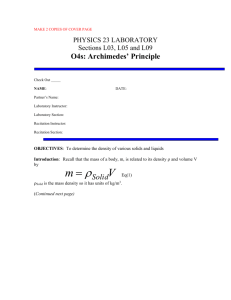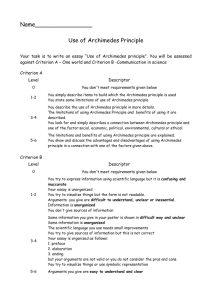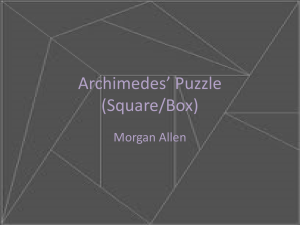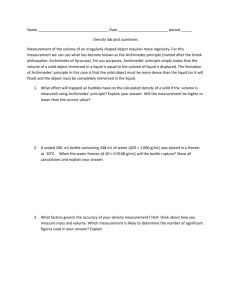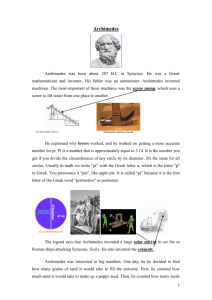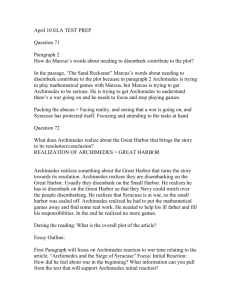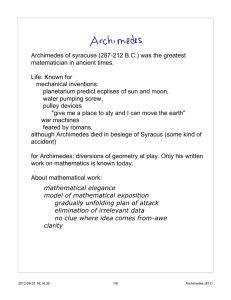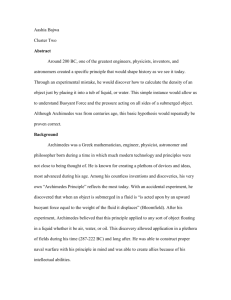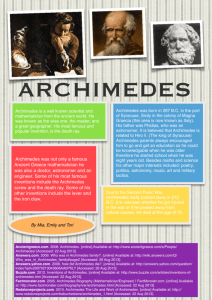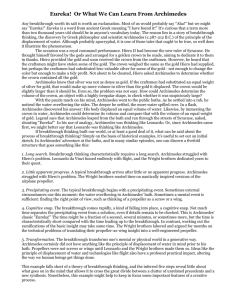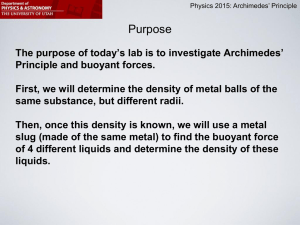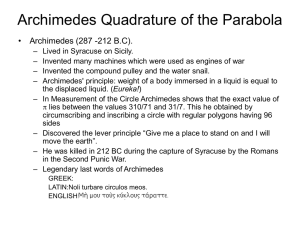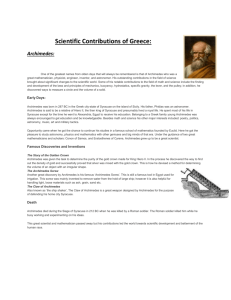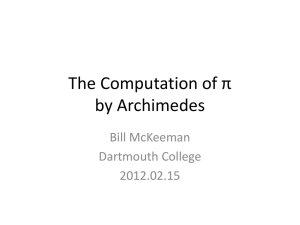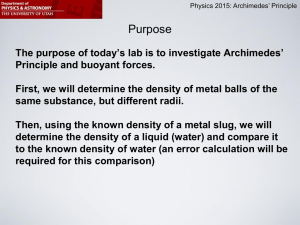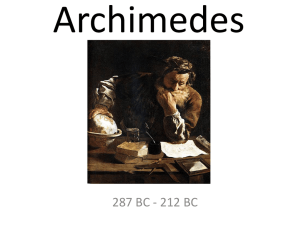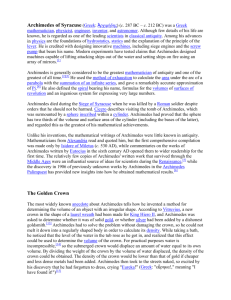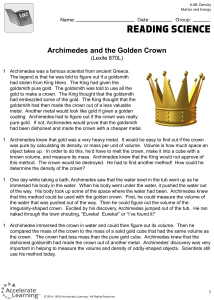Archimedes and Syracuse
advertisement
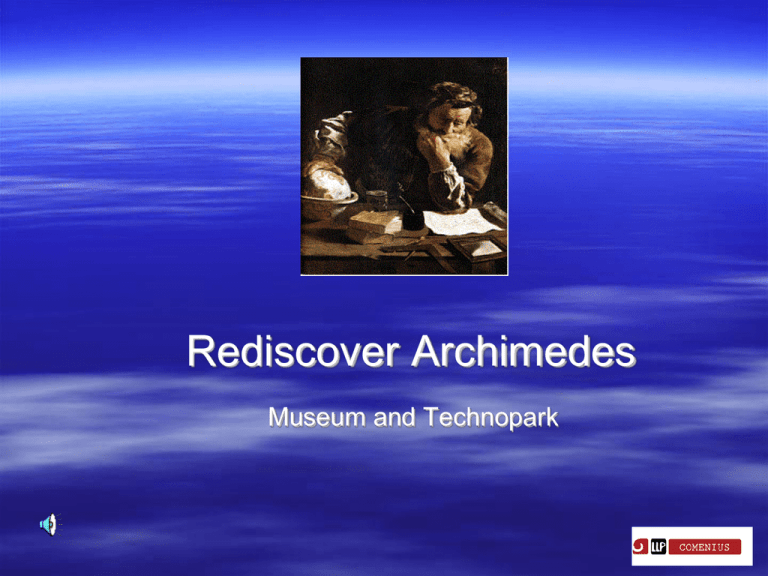
Rediscover Archimedes Museum and Technopark The Arkimedeion is a science and technology museum dedicated to the great Greek mathematician and phisicist : Archimedes was a real genius, one of the leading scientists of classical antiquity and it is important that the city of his birthplace has dedicated a museum to him. Archimedes was the greatest mathematician of antiquity. Born in Syracuse in 287 B.C., he lived under the reign of Hiero II. When he was young he travelled to Egypt where the Alexandrian mathematics was flourishing. He died in Syracuse at the age of 75 in 212 B.C., accidentally killed a Roman soldier who didn’t recognize him, as the Roman Consul wanted him alive. The treatise One the Sphere and Cylinder tackles the problem of the relationship between the volume and area of the two geometric figures. One of the results that gave Archimedes the greatest satisfaction was demonstrating that a sphere has a volume equal to 2/3 of the cylinder in which it is inscribed. Paraboloids: burning mirrors The principle discovered by Archimedes stated that a parabolic mirror reflects all the rays that arrive parallel to the axis of the parabola towards a precise point, where the radiation beam is concentrated: the focus of the parabola. The studies of Archimedes on the geometric properties of the parabola may be considered the basis for numerous achievements of today’s technology. Parabola antennas, with which we receive satellite television, exploit precisely the properties of the parabola. Similarly, large radio telescopes work on the same principle. Archimedes dedicated a treatise, On Spirals, to the figure in which he is the first to succeed in finding the proof of the area of the first ring of the spiral. The methods employed by Archimedes to obtain this result are the forerunners of modern differential geometry. To commemorate his brilliant discovery of the π, “Pi day” is celebrated each year on 14 March. In some Anglo-Saxon countries in fact, dates are conventionally written putting the number that indicates the month first (in this case 3) and then the number that indicates the day, so 14, with 3,14 being precisely the value of pi reached by Archimedes. A group of scholars currently working on the Ostomachion have indicated that there are clues to suggest that Archimedes had indeed prepared his geometric theorems thanks to the Ostomachion. The columns of the temple represent Archimedes’ perceptions sustaining the major disciplines of modern mathematics. A versatile genius, a guide for mathematicians, physicist and astronomers that showed to be a master in the art of war. Archimedes made a contribution to the defence of Syracuse against Roman siege during the Second Punic War. He invented various war machines such as the Crossbow, Catapult, the Scorpion. According to the legend on the advice of Archimedes, several hundred Syracusans with their mirrors reflected the rays of the sun onto particular points of the enemy ships, while the soldiers threw incendiary lances above the reflected beams The photo represents what is called the “tomb of Archimedes”. But it is actually a Roman columbarium, that is a Roman burial chamber provided with two rows of niches for placement of urns. In fact this morgue can’t be the one of the great scientist from Syracuse, as it has been dated between the first century B.C. and the first century A.D. The actual tomb of the scientist of Syracuse, discovered by Cicero, was to have a column which a sphere with a circumscribed cylinder was shown. On the 18th May in the Auditorium of our school there has been the presentation of the book “Archimedes – Precursor of centuries and millenniums”. Sister Teresa Fichera’s intention, book’s author, is to raise awareness about the genius of Syracuse. This passionate search about Archimedes proceeds in the convinction that “from the lap of the past grow qualities and consciousness of the present”.
